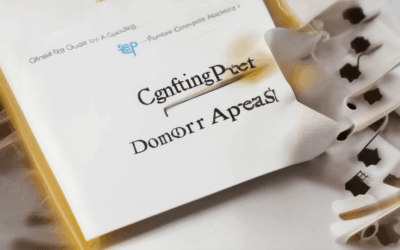Effective public speaking is a cornerstone of success for nonprofit organizations, enabling leaders to communicate their mission, inspire support, and drive meaningful change. For those new to public speaking, navigating the world of workshops, clubs, and resources can be overwhelming. While Toastmasters International remains a popular platform for honing public speaking skills, it’s just one of many tools available to nonprofit professionals. This guide explores the ins and outs of public speaking for nonprofits, delving into the benefits of joining Toastmasters, alternative resources, and tips for building a strong practice. Whether you’re looking to kickstart your public speaking journey or refine your existing skills, this comprehensive guide offers insights and strategies to help you excel. From understanding the basics to exploring advanced techniques, we’ll cover everything you need to know to become a confident and impactful public speaker.
Key Takeaways
– Toastmasters is a nonprofit organization focused on communication and leadership development, offering tools to enhance public speaking, leadership, and teamwork skills.
– It operates through member-driven clubs, emphasizing volunteerism and accessible, affordable resources tailored for individual growth.
– While Toastmasters excels in building foundational communication skills, it may lack depth in real-world application and leadership experience compared to other programs.
– Consider the cost, time commitment, and focus on public speaking before deciding if Toastmasters aligns with your nonprofit’s goals.
– Always adhere to Toastmasters’ guidelines when addressing sensitive topics to maintain a respectful and inclusive environment.

What are the 5 P’s of public speaking?
- P Preparation: Thoroughly research your topic, prepare your materials, and understand your audience. Organize your content logically to ensure clarity and coherence.
- P Practice: Rehearse your speech multiple times to perfect your delivery, timing, and tone. Practice in front of friends or colleagues for feedback and to build confidence.
- P Projection: Use effective body language, maintain strong eye contact, and project your voice appropriately to ensure your message is clear and engaging to everyone in the room.
- P Performance: Deliver your speech confidently and stay focused. Adapt to the audience’s reactions and adjust your delivery as needed to keep them interested and involved.
- P Passion: Speak with enthusiasm and conviction to convey your message effectively. Engage your audience emotionally to create a lasting impression.
How Much Can I Get Paid for Public Speaking?
Public speaking rates vary significantly based on several factors:
- Experience and Reputation: Established speakers may earn $1,000 to several thousand per engagement, while emerging speakers typically command lower rates, often ranging from $100 to $500.
- Event Type: Corporate events, educational conferences, and non-profits may offer different compensation structures. Corporates often have higher budgets, whereas educational and non-profit events might have stricter funding.
- Location: Speakers in major cities or high-demand areas may charge premium rates compared to those in smaller towns, with travel expenses sometimes added.
- Engagement Duration: Rates can be flat fees or billed hourly, depending on the speaker’s agreement with the organizer.
To determine fair rates, research average pay in your region and target audience. Networking with peers can provide insights into industry standards and negotiation tips. Consider starting with competitive rates aligned with your experience level and adjusting as you build your reputation and demand.

Is Toastmasters Still a Thing?
Toastmasters International is indeed still very much active and thriving globally. Established in 1924, Toastmasters has grown into a worldwide network of more than 15,000 clubs in over 140 countries. Their mission remains to help individuals improve their communication and leadership skills through interactive workshops, meetings, and events.
The organization has evolved over the years to meet modern demands, incorporating virtual meetings and online learning opportunities during the COVID-19 pandemic. Toastmasters continues to emphasize personal development, teamwork, and building confidence through public speaking and leadership training programs.
Whether you’re looking to enhance your communication skills, develop leadership abilities, or simply connect with a supportive community, Toastmasters remains a popular choice for individuals and organizations alike.

Is Toastmasters a Non-Profit?
Yes, Toastmasters International is a non-profit organization. As a non-profit, Toastmasters operates with the mission to “build confidence and skills in communication and leadership through supportive member-driven clubs.” The organization is headquartered in Rancho Santa Margarita, California, and has a global footprint with clubs in over 140 countries.
Key Features of Toastmasters as a Non-Profit:
- Educational Programs : Toastmasters offers a variety of educational programs and resources designed to help individuals improve their communication and leadership skills.
- Member-Driven Clubs : The organization is structured around local clubs where members can participate in workshops, meetings, and events led by fellow members.
- Volunteer-Led : Toastmasters relies heavily on volunteer efforts, with most activities being organized and conducted by its members.
- Non-Profit Status : Being a non-profit allows Toastmasters to focus on its mission without the pressure of generating profits, enabling it to allocate resources toward serving its members and the broader community.
Competitors and Alternatives:
While Toastmasters is a prominent non-profit in the field of communication and leadership development, there are other non-profit organizations that offer similar services. Some notable examples include:- SkillsUSA : A non-profit focused on career development and skill-building for students.- DECA : A non-profit dedicated to developing leadership and entrepreneurship skills among high school students.
These organizations, like Toastmasters, provide valuable resources and opportunities for personal growth, often catering to specific demographics or interests.
By maintaining its non-profit status, Toastmasters remains committed to its core values of fostering growth and development in a supportive environment.
Disadvantages of Toastmasters
Toastedmasters is a well-known organization focused on communication and leadership development. However, like any program, it has its drawbacks. Below are some potential disadvantages:
Limited Real-World Application
While Toastmasters claims to develop real-world leadership skills, many members find that the focus is often on prepared speeches rather than hands-on leadership experiences. This can leave participants feeling unprepared for actual professional challenges.
Potentially High Costs
Toastmasters meetings and materials can be costly, especially for larger groups or those requiring advanced resources. This expense may be prohibitive for individuals or organizations with limited budgets.
Time Commitment
Regular participation requires a significant time commitment, which can be challenging for busy professionals or students balancing multiple responsibilities. This can lead to burnout or reduced engagement over time.
Focused on Public Speaking
While public speaking is an important skill, Toastmasters often emphasizes this aspect over others like leadership strategy, team management, and decision-making. This can leave participants seeking broader development feeling underwhelmed.
Lack of Diversity in Content
Toastmasters offerings may not always align with the needs of diverse industries or niches. This can limit the utility of the program for individuals looking for specialized skills or knowledge.
Feedback Loop Limitations
The feedback mechanism within Toastmasters is typically confined to club members, which may not reflect real-world professional feedback. This can result in participants developing skills that are not fully aligned with external expectations.
Emphasis on Preparation Over Execution
Toastmasters often focuses on preparing speeches rather than refining executional skills like adaptability, crisis management, and spontaneous communication. This can leave participants with a strong foundation in preparation but less in execution.
Possible Monoculture
Toastmasters events may lack diversity in thought or background, potentially limiting exposure to different perspectives and ideas. This can hinder personal growth and innovation.
Overemphasis on Speech-Centric Development
While public speaking is valuable, Toastmasters may oversimplify leadership development by focusing almost exclusively on this area. This can leave participants with a narrow skill set compared to other leadership programs.
For those considering joining Toastmasters, it’s essential to weigh these disadvantages against the benefits to determine if the investment in time and resources aligns with personal or professional goals.

What Topics Are Not Allowed in Toastmasters?
Toastedmasters International does not prohibit any specific speech topics, including those related to politics, religion, or sensitive subjects like sex. The organization encourages members to explore a broad range of topics, including controversial ones, as long as the content is delivered respectfully and focuses on personal growth and learning.
However, it’s important to note that while there are no outright bans on certain topics, Toastmasters does emphasize that speeches should be conducted in a manner that is conducive to a positive learning environment. This means avoiding harmful or offensive language, regardless of the topic.
For more details on Toastmasters’ guidelines for speech content, visit their official website: Toastmasters International .
Common Misconceptions:
- Speeches on political issues are not banned.
- Religious topics are permitted, provided they are handled respectfully.
- Sexual content is not automatically restricted, but it must be presented in an appropriate and non-offensive manner.
How to Handle Sensitive Topics Responsibly:
- Stick to the Toastmasters core values of respect, integrity, and service.
- Choose topics that align with your personal goals and the group’s objectives.
- Be mindful of the audience’s sensitivities and deliver the content in a way that promotes understanding and dialogue.
In conclusion, Toastmasters provides a supportive environment for members to explore various topics, including those that may be considered controversial. As long as the presentation is respectful and aligned with the organization’s guiding principles, almost any topic is acceptable.





0 Comments